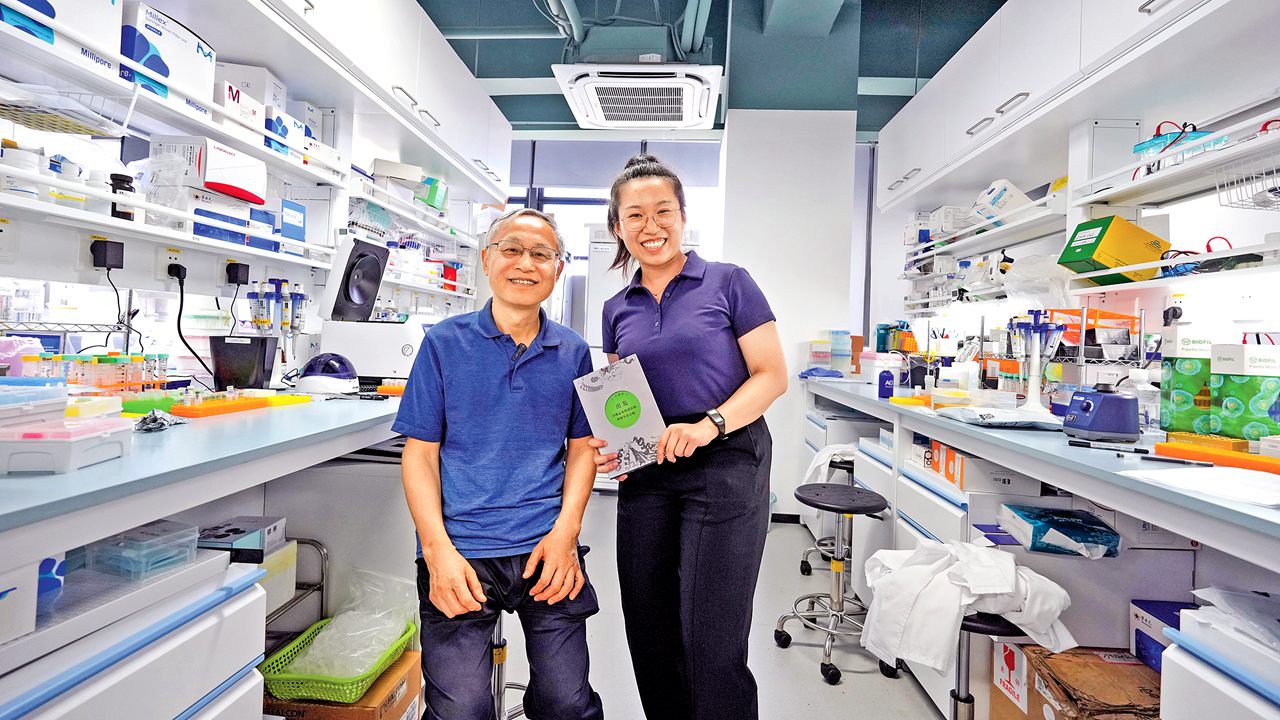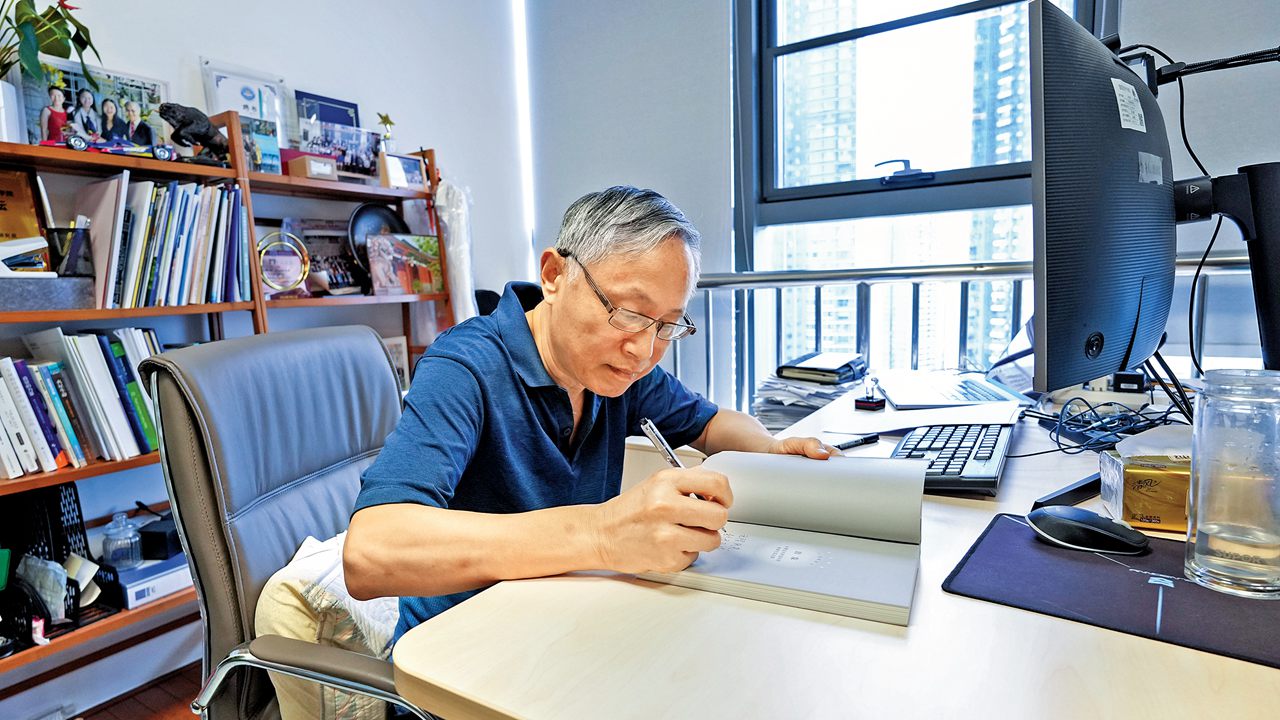AI meets biology: The journey of Dr. Zhou
Writer: Chen Siqi | Editor: Zhang Zeling | From: Original | Updated: 2024-08-02
Video and photos by Liu Xudong
How can artificial intelligence (AI) be applied in biology? What is the life of a scientist really like? How has structural bioinformatics evolved from a niche research area to a popular field? The story of Dr. Zhou Yaoqi, a senior principal investigator at the Shenzhen Bay Laboratory, may provide some insight into these questions.
For Zhou, scientific research is as fun as playing games — each time his research progresses, he feels like he has unlocked a new level. He has also participated in a stand-up comedy show, using his career in scientific research as material. Zhou’s groundbreaking research and playful disposition have earned him the nickname “scientific old boy” from colleagues.

Dr. Zhou Yaoqi (L) poses for a photo with Shenzhen Daily reporter Chen Siqi, who is holding a book written by Zhou, in his lab.
Zhou’s scientific journey began when he was a doctoral student in the U.S. and has continued for nearly 40 years. He has worked in both the U.S. and Australia, holding tenured professor positions at Indiana University-Purdue University and Griffith University. In 2023, after spending 35 years abroad, he returned to China to continue his scientific research and build a multidisciplinary team.
Stepping out of one’s comfort zone is a principle Zhou embraces wholeheartedly. He has transitioned through four research fields, beginning with the statistical mechanics of simple molecules to the current domain of structural bioinformatics. Throughout this journey, he has encountered numerous failures and setbacks, all of which have guided him to his present path.
Passion for research
Zhou believes that the key to a meaningful life is discovering one’s passion. In 1994, he made the bold decision to resign from his first job at a startup company to pursue a career in scientific research, which he realized was his true calling.

Dr. Zhou Yaoqi working in his office.
Despite facing challenges and the difficulty of re-entering the scientific field, he became a postdoctoral fellow and worked with one of his adviser’s former students, which led him to shift his focus to polymer dynamics.
This transition broadened his thinking and ultimately positioned him for success. Zhou received an NIH (U.S. National Institutes of Health) Postdoctoral Fellowship and become a student of Martin Karplus, recipient of the 2013 Nobel Prize in Chemistry. It was during this fellowship that he discovered a passion for computational biology.
Continuing career in SZ
Zhou’s current research focuses on AI-powered biology — an area that may seem mysterious to many, yet has the potential to change the world.
“Using AI to design proteins is expected to bring revolutionary changes to synthetic biology within the next two to three years,” Zhou stated. “We were pioneers in employing AI for protein design back in 2014 and later integrated deep learning into our design. The progress in the field can be likened to a relay race,” he explained.
Zhou emphasized the significance of AI in biology, particularly in predicting protein structures and determining their functions, which could streamline drug discovery processes, reduce costs, and save valuable time.
After relocating to Shenzhen, Zhou has engaged in both basic and applied research. His team, which he formed from scratch, now consists of over 30 members and covers five research domains, including molecular biology, cell biology, AI computing, instrument development, and chemical synthesis.
To date, Zhou has secured funding at both the national and provincial levels for the research and development of innovative medicines, including RNA-targeting small molecules. “I have a deep affection for Shenzhen — a young, inclusive, and vibrant city that supports diverse interdisciplinary research,” Zhou said. He added that the Shenzhen Bay Laboratory, with its focus on human health and disease, has established a well-structured system for providing accreditation services.
Scientific blogger
In 2010, Zhou began writing blogs on ScienceNet, a specialized scientific media platform in China. To date, he has published over 160 articles. Initially sharing insights on scientific research, he later expanded to themes like popular science, family, and life. These blogs were recently compiled into a book that was published earlier this year.
“I aimed to share my personal experiences with young readers, recounting moments of confusion and failure as well as gradual progress towards success. I hope my experiences resonate with them and provide lessons for their own journeys,” Zhou explained.
“To read ten thousand books and travel ten thousand miles. Step out of your comfort zone and explore the meaning of life.” This motto serves as Zhou’s guiding principle.